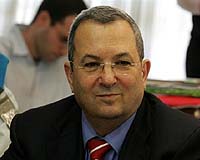 |
Belgrade (AFP) April 19, 2010 Almost 15 years after the wars in former Yugoslavia, the Serbian and Croatian presidents are leading a new push towards reconciliation in the conflict-scarred Balkans. In an unprecedented move, Serbian President Boris Tadic launched an initiative that on March 31 resulted in Serbian parliament's declaration condemning the 1995 Srebrenica massacre of some 8,000 Muslim men and boys by Bosnian Serb forces. Two weeks later Croatian President Ivo Josipovic made an equally unprecedented move, expressing before the Bosnian parliament his "regrets" for the role his country had played in the 1992-1995 war in Bosnia. Next day Josipovic visited the central Bosnian village of Ahmici, a symbolic site where Bosnian Croat forces killed 116 Muslim civilians in April 1993. In terms of population and the strength of their economies, Serbia and Croatia are the regional heavyweights to have emerged out of the former Yugoslavia. Both countries also harbour ambitions of joining the European Union, which would be difficult without putting their past conflicts behind them. The fact that their leaders are making efforts to overcome the legacy of past conflicts can only be beneficial for the entire region, according to Ivan Vejvoda of the non-governmental Balkan Trust for Democracy. In a sign of the apparent understanding emerging between the two presidents, they have met three times in less than a month. In addition, Josipovic on Friday reiterated his wish to solve in "other ways" -- out of the court in other words -- the issue of reciprocal genocide complaints filed by Serbia and Croatia to the International Court of Justice. Tadic recommended the same thing in late March. He expressed a hope on Friday that Serbia and Croatia could demonstrate a "real maturity" to address "problems of the past in a different rather than in a traditional way." He also advocated "joint government meetings," something unthinkable until now. The complaints of genocide allegedly committed during Croatia's 1991-1995 independence war are a key obstacle to a genuine breakthrough in bilateral relations. Zagreb denounces the role of Serbs, who were then led by Slobodan Milosevic. Belgrade accuses Croats for the massive violence against Serbs in Croatia. A refusal to accept that one's own side committed atrocities has been common throughout the Balkans for a long time, and a major obstacle to reconciliation efforts. "One of the Balkans' ills is that people are only prepared to talk about victims in their own nations and not those in other nations," Tadic said in an interview to a Bosnian television in January. "Until now, the leaders ... have paid tribute only to victims belonging to their own nation, condemning only the crimes of other" nations, wrote analyst Jelena Lovric in Croatian daily Jutarnji List. The fact remains that the process of reconciliation, fostered by the European Union to which all western Balkan countries hope to join, will still be very long, for both psychological and political resistance is strong. The reactions to the Serbian parliament's declaration on Srebrenica and to Josipovic's gestures in Bosnia are revealing. Bosnian Muslims deplored that the word genocide was not included in the declaration, while Bosnian Serbs felt that it ignored crimes committed against them. And Josipovic's initiatives in Bosnia raised a political storm in Croatia, angering Prime Minister Jadranka Kosor, who criticized him for not consulting her over the moves. burs-pg/ks/lt/jj
Share This Article With Planet Earth
Related Links
 Israeli defence minister seeks to calm war fears
Israeli defence minister seeks to calm war fearsJerusalem (AFP) April 19, 2010 Israeli defence minister Ehud Barak sought to calm fears of an impending new Middle East war, telling a radio interviewer Monday that Israel had no intentions of starting a fresh round of fighting. Speaking on army radio as Israel observed a day of remembrance for its war dead and victims of militant attacks, Barak was asked to respond to comments last week by Jordan's King Abdullah II, in w ... read more |
|
| The content herein, unless otherwise known to be public domain, are Copyright 1995-2010 - SpaceDaily. AFP and UPI Wire Stories are copyright Agence France-Presse and United Press International. ESA Portal Reports are copyright European Space Agency. All NASA sourced material is public domain. Additional copyrights may apply in whole or part to other bona fide parties. Advertising does not imply endorsement,agreement or approval of any opinions, statements or information provided by SpaceDaily on any Web page published or hosted by SpaceDaily. Privacy Statement |